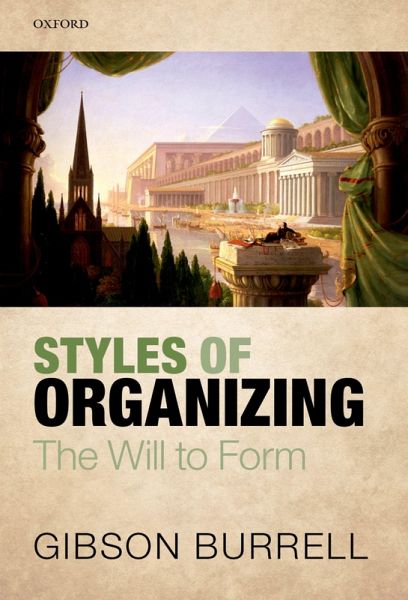
Styles of Organizing (eBook, PDF)
The Will to Form

PAYBACK Punkte
15 °P sammeln!
In this book, leading organization theorist Gibson Burrell presents a provocative and challenging approach to the study of organizations, aiming to move beyond the two-dimensionality of much organizational thinking and present more complex 3-D models, which allow for the 'intractions' of apparently disparate perspectives. The book aims to illuminate organization theory by discussing its interrelationship with key features of economics, architecture, aesthetics, design of the built environment, and associated artwork. He argues that by their shared 'definitions', these areas of social science a...
In this book, leading organization theorist Gibson Burrell presents a provocative and challenging approach to the study of organizations, aiming to move beyond the two-dimensionality of much organizational thinking and present more complex 3-D models, which allow for the 'intractions' of apparently disparate perspectives. The book aims to illuminate organization theory by discussing its interrelationship with key features of economics, architecture, aesthetics, design of the built environment, and associated artwork. He argues that by their shared 'definitions', these areas of social science and the humanities are struggling with the same issue - 'the will to form'. The author suggests that, whilst there are a huge number of possibilities for the process of organizing, the constraints of the human body, our cognitive limitations in space and time, and our relationship to nature, mean that these are necessarily limited to an 'envelope' of possibilities. He then outlines the basic parameters of the 'design envelope', analysing it through discussion of 'styles', and examines the hidden assumptions of these styles with regards the origins and potentialities of human knowledge. Burrell argues that the envelope of organizational, politico-economic, and architectural design possibilities may be seen as a cube, thus taking forward the geometrical notions of 'lines' of fight, 'points' of difference, and 'planes' of agreement to discuss the huge range of, and massive constraints upon, human organizing that are reflected in the 'will to form'. Key differences in assumptions demarcate distinct 'styles of organizing' which every reader possesses - whether they are aware of them or not.
Dieser Download kann aus rechtlichen Gründen nur mit Rechnungsadresse in A, B, BG, CY, CZ, D, DK, EW, E, FIN, F, GR, HR, H, IRL, I, LT, L, LR, M, NL, PL, P, R, S, SLO, SK ausgeliefert werden.













